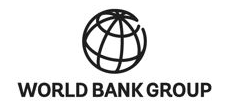Two partnerships related to resilient urban development have been unveiled over the past few days.
The World Bank Group and the Global Facility for Disaster Risk Reduction (GFDRR) have announced a partnership that will strengthen building regulation for disaster resilience in vulnerable countries, by improving implementation and compliance through the 'Building Regulation for Resilience: Managing Risks for Safer Cities' program.
For their part, UN-Habitat and the Union for the Mediterranean (UfM) have agreed to cooperate on actions aimed at achieving socially and environmentally sustainable urban development in the Mediterranean region.
These developments will help achieve Sustainable Development Goal 11 (Make cities and human settlements inclusive, safe, resilient and sustainable).
 8 April 2016: Two partnerships related to resilient urban development have been recently been unveiled. The World Bank Group and the Global Facility for Disaster Risk Reduction (GFDRR) have announced a partnership that will strengthen building regulation for disaster resilience in vulnerable countries, by improving implementation and compliance through the ‘Building Regulation for Resilience: Managing Risks for Safer Cities’ program. For their part, UN-Habitat and the Union for the Mediterranean (UfM) have agreed to cooperate on actions aimed at achieving socially and environmentally sustainable urban development in the Mediterranean region. These developments will help achieve Sustainable Development Goal 11 (Make cities and human settlements inclusive, safe, resilient and sustainable).
8 April 2016: Two partnerships related to resilient urban development have been recently been unveiled. The World Bank Group and the Global Facility for Disaster Risk Reduction (GFDRR) have announced a partnership that will strengthen building regulation for disaster resilience in vulnerable countries, by improving implementation and compliance through the ‘Building Regulation for Resilience: Managing Risks for Safer Cities’ program. For their part, UN-Habitat and the Union for the Mediterranean (UfM) have agreed to cooperate on actions aimed at achieving socially and environmentally sustainable urban development in the Mediterranean region. These developments will help achieve Sustainable Development Goal 11 (Make cities and human settlements inclusive, safe, resilient and sustainable).
The World Bank and GFDRR program will: partner with governments, the private sector and civil society to show how national-level governance reform, institutional capacity building, and transparent and accountable processes at the local level can mitigate disaster risk; and develop and promote activities to increase regulatory capacity and promote healthier, safer and less risky cities through applied science, sound engineering and the appropriate institutions. The program is based on the premise that: building code compliance is cost effective and saves lives; strong regulatory frameworks encourage investments in safe structures; and safe buildings protect the assets of poor and vulnerable populations. According to the World Bank, unregulated urbanization and climate change lead to increasing losses from disasters, often impacting the poor the most. Therefore, in addition to advancing progress on SDG 11, the program will also contribute to the achievement of SDG 1 (End poverty in all its forms everywhere) and SDG 13 (Take urgent action to combat climate change and its impacts).
The program also emphasizes local cultural, economic and social factors in building practices, enabling building code compliance to be more accessible to poor and marginalized populations. It has four main components: national-level legislation; building code development and maintenance; local implementation; and knowledge sharing and measurement. The GFDRR is a global partnership that helps developing countries better understand and reduce vulnerability to natural hazards and adapt to climate change, and is managed by the World Bank and supported by 34 countries and nine international organizations.
In other sustainable urban development-related news, UN-Habitat and the Union for the Mediterranean (UfM) have signed a Memorandum of Understanding (MOU), agreeing to: undertake joint actions related to socially and environmentally sustainable urban development in the Mediterranean region; find common responses to challenges facing urban areas; and identify areas of collaboration regarding water management, risk reduction and resilience.
Both organizations agreed to develop strategies, initiatives and projects in UfM member countries to promote an integrated and cooperative approach to urban development, including those related to resilience, disaster risk reduction (DRR), environmental management, capacity-building support and the existing Urban Projects Finance Initiative. UfM, an intergovernmental organization comprised of 43 countries, promotes sustainable urban development in the Mediterranean region through an integrated and cooperative approach and regionally applicable solutions, focusing on youth as a key driver for regional stability.
Both the World Bank-GFDRR program and the MOU come ahead of the the UN Conference on Housing and Sustainable Urban Development (Habitat III), which will convene in Quito, Ecuador, from 17-20 October 2016, and is being organized by UN-Habitat. [World Bank Press Release] [Building Regulation Programme Brochure] [Proposed Programme Summary] [UfM Press Release] [UN-Habitat Press Release] [UNISDR Press Release]